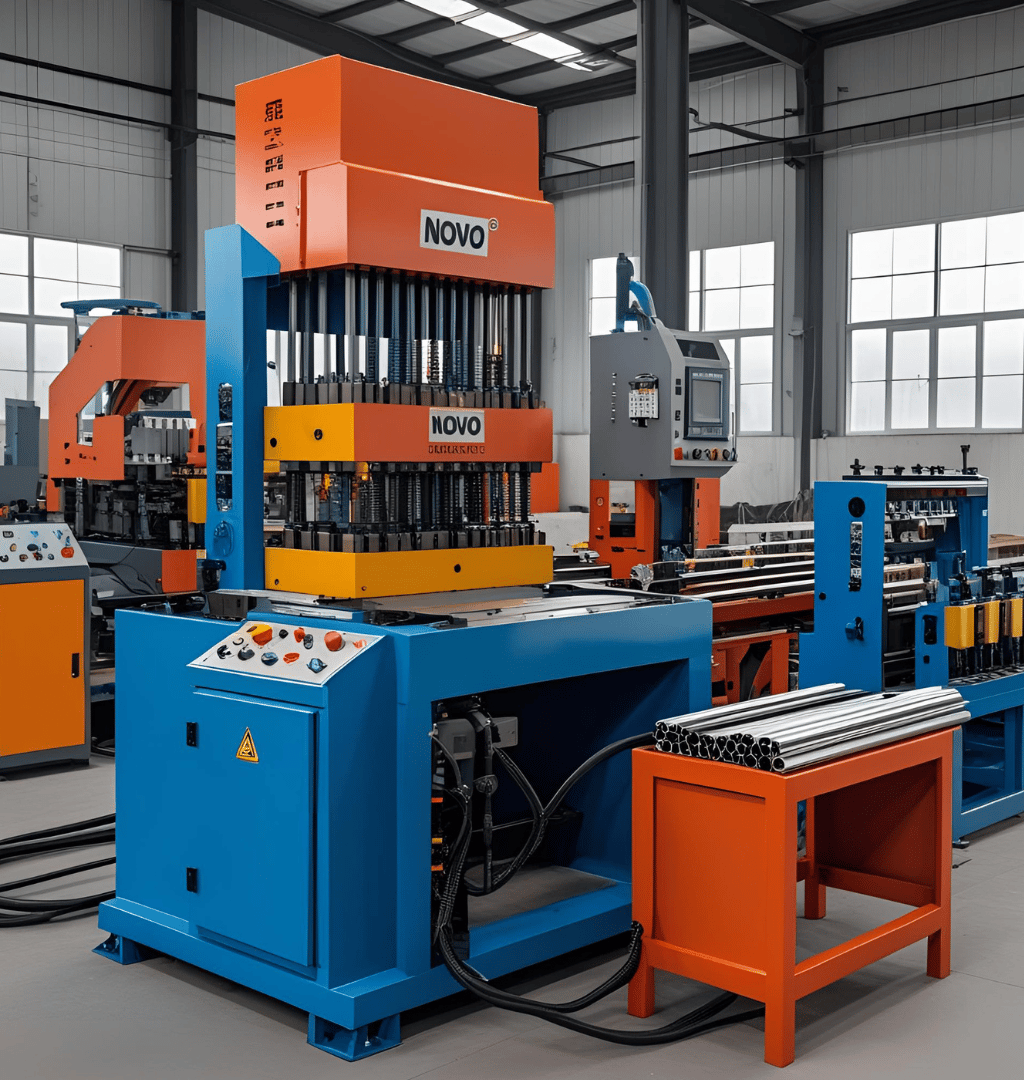Busbar Processing Machines in industrial automation for Control Panel Manufacturers
Discover why busbar processing machines are essential for control panel manufacturers in the industrial automation sector. Learn how these machines enhance efficiency and improve production quality.
8/4/20254 min read


Introduction to Industrial Automation and Control Panels
Industrial automation refers to the use of control systems for operating equipment in various industries with minimal or reduced human intervention. This encompasses the use of computers and machinery, which significantly enhances productivity, efficiency, and safety across manufacturing processes. With the rapid advancements in technology, the role of automation has become increasingly crucial, enabling industries to meet the demands of today’s fast-paced market.
Central to industrial automation are control panels, which play a pivotal role in monitoring and controlling various industrial operations. These panels house electrical components such as switches, relays, and circuit breakers, serving as the nerve center for controlling automated systems. Control panels are designed to facilitate communication between different operating devices, ensuring that processes run smoothly and efficiently. As industries adopt more complex machinery and technology, the demand for sophisticated control panels has risen correspondingly.
The complexity of modern industrial operations necessitates a higher level of precision and reliability in control panel manufacturing. Manufacturers are now faced with the challenge of producing panels that can accommodate advanced technologies and integrate seamlessly with a variety of automated systems. This evolving landscape demands innovative solutions and equipment that can enhance the efficiency of control panel assembly. Consequently, the adoption of advanced manufacturing processes, such as busbar processing, is becoming increasingly important for control panel manufacturers to meet these challenges head-on.
This blog post will explore the significance of industrial automation and the integral role of control panels within this framework. Furthermore, we will delve into the technological advancements that are shaping the future of control panel assembly, particularly focusing on the importance of busbar processing machines in optimizing production processes.
Understanding Busbars and Their Importance
Busbars are essential components in electrical distribution systems, particularly within control panels used in industrial automation. These conductive metal bars, typically constructed from copper or aluminum, serve as a vital conduit for electrical power, effectively interconnecting various components of an electrical system. By providing a reliable path for electricity flow, busbars ensure that power is efficiently distributed to the necessary circuits and devices, thereby playing a crucial role in the overall operational efficacy of control panels.
The advantages of using busbars over traditional wiring methods are multifaceted. One significant benefit is the improvement in efficiency; busbars minimize electrical resistance and heat generation, leading to enhanced power delivery and reduced energy losses. This efficiency translates directly into better performance for automated systems, as consistent and reliable electrical supply is paramount. Additionally, busbars can accommodate higher current loads than typical wiring solutions, making them suitable for high-performance industrial applications.
Another critical advantage is safety. Busbar systems are often designed with integrated insulating and protective features that mitigate the risks associated with electrical faults, such as short circuits and overloads. This enhanced safety minimizes potential hazards for personnel and equipment, fostering a safer working environment. Furthermore, the compact design of busbars allows for more efficient use of space within control panels. This is particularly advantageous in environments where space is at a premium, enabling manufacturers to create more functional and organized control systems.
In summary, busbars are integral to the functionality of industrial automation systems. Their construction materials, along with their inherent properties, make them a superior choice for managing electrical distribution. By incorporating busbars into control panels, manufacturers can achieve greater efficiency, enhanced safety, and a more streamlined design, ultimately contributing to the reliability of complex automation processes.
Benefits of Busbar Processing Machines
Busbar processing machines are indispensable tools for control panel manufacturers, offering a myriad of advantages that enhance both productivity and efficiency in manufacturing environments. One of the primary benefits of these machines is their capability for precision cutting and bending of busbars. High-precision operations ensure that each component adheres to exact specifications, reducing the likelihood of errors that can lead to costly rework and delays. This level of accuracy is especially crucial in industries where electrical safety and performance are paramount.
Automation capabilities further distinguish busbar processing machines from traditional methods. These machines often come equipped with advanced technological features that streamline the production process, such as automated feeding systems and programmable settings. This not only minimizes manual input but also allows manufacturers to run multiple batches with reduced supervision, thereby significantly boosting operational efficiency. Automation translates to fewer human errors and enhances consistency across multiple production runs, making it an optimal solution for businesses looking to upscale their operations.
Moreover, the implementation of busbar processing machines can lead to a substantial reduction in labor costs. By automating labor-intensive tasks such as cutting, bending, and drilling, manufacturers can decrease their reliance on manual labor, allowing for a reallocation of human resources to more strategic roles. This labor optimization not only fosters a better operational structure but also contributes to higher employee satisfaction as workers engage in more fulfilling work.
Additionally, these machines are known for increasing throughput, which is vital for meeting the ever-growing demand in various industries. Real-world applications have showcased that manufacturers utilizing busbar processing machines can achieve significant production increases, leading to timely order fulfillment and enhanced competitiveness in the market. Overall, the benefits of busbar processing machines are wide-ranging, impacting efficiency, cost-effectiveness, and operational scalability in control panel manufacturing.
Choosing the Right Busbar Processing Machine for Your Needs
When it comes to selecting a busbar processing machine, manufacturers must consider several critical factors to ensure they choose a solution that meets their specific requirements. The first consideration is assessing production volume. Identifying the expected output will help manufacturers determine the machine’s capabilities. High-volume production necessitates a robust and efficient machine that minimizes downtime, whereas lower production volumes can allow for more versatility in equipment.
Understanding technical specifications is another essential element. Manufacturers should examine factors such as the machine's cutting, bending, and punching capabilities, as well as its speed and accuracy. Additionally, evaluating energy consumption and maintenance requirements is crucial, as these aspects will directly affect the long-term operational costs associated with the busbar processing machine.
Flexibility is imperative when choosing a machine, especially regarding the variety of busbar sizes and shapes it can handle. A machine that offers adjustable settings will enable manufacturers to produce different configurations without needing multiple machines, thus saving space and investment costs. Incorporating a busbar processing machine that can swiftly adjust to new designs can also facilitate a manufacturer’s response to market demands and customization requests.
A further consideration is how the selected machinery will integrate into existing production lines. Compatibility is vital to ensure smooth transitions between processes. Evaluating the potential for automation and data connectivity features can also enhance operational efficiency. With the ongoing evolution of busbar technology, manufacturers should also stay informed about trends such as new processing techniques and the use of advanced materials, which can present opportunities for enhancements in productivity and product quality in the competitive landscape of industrial automation. By carefully assessing these factors, manufacturers can make informed decisions that align with their operational goals.
Innovate
Leading manufacturer of busbar processing equipment solutions.
Contact
Support
+131 2713 4627
© 2025. All rights reserved.
